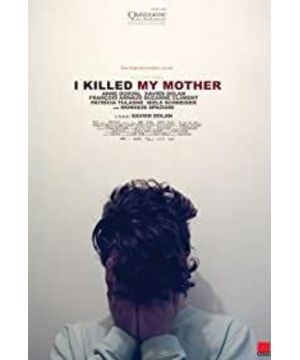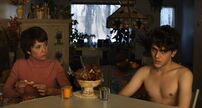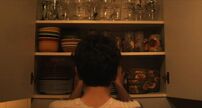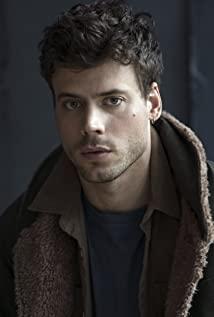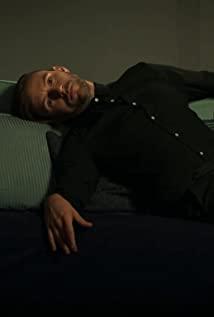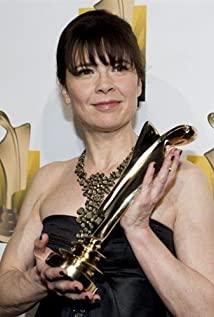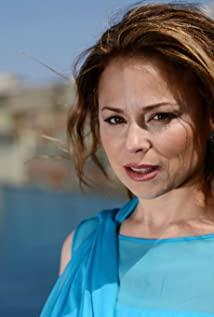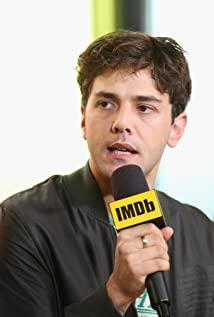(This article is in traditional Chinese for the homework of the film and television and gender courses during the exchange in Taipei)
I Killed My Mother : A Little Misconception
Xavier Dolan is 30 years old, 10 years older than me. It is said that I Killed My Mother was written when he was 16 years old. When he was 19 years old, he videoized the text, wrote, directed and acted by himself. When he was 20 years old, he shocked the entire Cannes Film Festival and made countless people ashamed. Also at my age, as my peer, Dolan made his debut. Of course, this is not about his peer pressure on me as a peer, but simply being a peer (son, gay, film student, or even an art amateur) with a similar experience to discuss Dolan's work brought me an experience of empathy. Because the empathy is too deep, I cannot force myself to use the so-called rationality and objectivity to analyze his works. This experience can only be an experience, and it is just a little misunderstanding of my movie watching.
Son, gay. I heard Dolan's name very early in my movie viewing experience. Not earlier than my beloved Andrew Haigh, and not later than the long-admired Derek Jarman and Pedro Almodovar. (Why is there no female director? Because there is little experience in watching movies.) Compared with Jarman's thinking about the image itself in pure film and the mythological metaphor of his own gay identity (the innovation of the image in the posthumous work "Blue", "Sebastian") , "Caravaggio" and other reflections on homosexuality). Almodover is keen to unearth the expression of "scars" in his repressed memories, his childhood when he was dependent on his mother, his childhood when he was once violated by a priest, and his love for film, literature and art has been transformed into an indispensable part in Almodover's films. Elements. His films are filled with fiery sex, violence and undeniable self-identity. If anyone has influenced Dolan's creation, I think there must be Almodover. Like him, Dolan never stopped digging into his own experiences. But through the comparison of their films, it is not difficult to see that Almodover values his son's identity more than gay Dolan. Almodover will always give priority to the creation of artistic and film elements. Let the rest come down to "trauma". He has not recovered from the "trauma", and Dolan and most of his contemporary comrades generally think that "comrade" is just their life, and return to the daily narrative. The hit movie "Love, Simon" a while ago is a good example. In many news reports, it has been used as a sign of the so-called "post-gay era". What is a "post-comrade"? That is, when the identity of "comrade" is deconstructed in the postmodern context. Is there any essence or speciality of "comrade" in "comrade"? Not all people. Most people today are no longer shocked and curious about this identity. In Taiwan, where gay marriage is now passed (although it is a special law), gays begin to think that they are born, old, sick and die with the general cisgender, and self-identification is no longer a very problematic issue. That's the case with Dolan's films, where Hubert's gay identity in I Killed My Mother never bothered him. When my mother found out, she just blamed him for not telling her the first time. A lot of school bullying is based on gender. The bullying at the end of the film is not because of gay status. As a comrade, Dolan returns to everyday life.
Actually, I always prefer the literal translation of the movie title: "I killed my mother" rather than "Listen to my mother". The latter, in my opinion, is just on the marketing side, in order to sell the film, to rub off on Jay Chou's hot list of the same name. I killed my mother, how to kill? Semantic kill. "I hate my mom, she's renegade, she's rude, selfish, self-righteous, I want her to disappear from my life, so I 'kill' her. I hate her, but I love her, not a son to a mother的愛,而是其他的層面上的,如果有人讓她哭了,我一定會衝過去狠狠地揍他/她。”類似這樣的關於兩人關係的台詞在電影不很少見。Dolan loves his mother dearly. This kind of "love" cannot be accurately translated in Chinese. It is not a simple love between a man and a woman, or a love in terms of family affection, but a kind of strong relationship between people. It loves people, not any kind of love. Socially imposed relationships between individuals. From this I would think Dolan wants to discuss the issue of "motherhood" in the film. "Mother" or "motherhood" has always been a very terrifying existence imposed on women by human history. People tend to subjectively believe that only women exist to have "motherhood", to have "motherhood", and to conceive and raise children as a "maternal body". Just imagine how terrifying it is, when women are all regarded as "maternal bodies" and become reproductive tools. Isn't this the cataclysmic world told in the American TV series "The Handmaid's Tale"? The love Dolan talks about in the film is not "the kind of love between mother and son", but about the person he raised, not her fixed social role as a mother. I killed my mother, what did I kill? It is the image and existence of "mother" that is killed, and the meaning of "motherhood" is obliterated. Return to the most equal relationship between people. This is the main reason why I am so immersed in the film. It reminds me of my mother. I love her, but I also "hate" her to some extent, and this emotional tangle has been with me all my life. I believe my mother loves me. As a mother, she may do anything she can for me, but I hope her love is based on the fact that I am a person with an independent personality. After putting aside "motherhood", is my mother still obliged to raise, take care of, and love me? This video got me thinking. At the same time, I believe more in "motherhood" and "motherhood", but they are just a method used to discipline women under the patriarchal system. All intimate relationships, including parent-child, are essentially a microcosm of the relationship between people. like
Finally, let's discuss some of Dolan's skills in the film. Although this film is very mature as the debut of a 20-year-old director, it still has a lot of rough spots in today's view after 10 years. Such as lens language and scene art. But Dolan tries to use some metaphorical symbols to complete the film. In the film, mother and son Hubert and mother and son Anthony are actually a set of relationships that contrast with each other, and they are each other's reflections. Mother and son Anthony can easily joke at home, but mother and son Hubert are unhappy at each other at the dinner table. There are some small details in the scene art, which not only reflect the relationship between the two pairs of mother and son, but also show Director Dolan's ingenuity in aesthetics. It is the use of conventional symbols in the history of art. There is a pair of Edward Munch's "The Scream" hanging in the living room of Hubert's house. Its distorted and strong symbolic style is intended to illustrate that the mother and son are both screaming in physical space and in relationship. As terrifying as The Scream. Anthony's room also has a similar famous painting, Gustave. Mother and Child by Gustav Klimt, mother and child hugging intimately. The conclusion is clearly drawn. Of course there is more than one such metaphor in the movie. Dolan's three quick-cut close-ups of objects, the first two of which can be seen as expressions of Hubert's heart. The third time was a little different, and it was a small sculpture of Christ and a dove. This is of religious significance. In Catholic teachings, Christ (Jesus) is often seen as the dove that symbolizes the Holy Spirit (Holy Spirit) cast by the Father Jehovah (Jehovah) in the womb of the Virgin Mary. The Holy Spirit, Holy Spirit Father and Holy Spirit Trinity. An angry mother in Hubert's eyes is like a Virgin in tears. In addition to these deep meanings, or many Lan is more to express that the father leaves the mother and son after making the mother give birth to the child, and lays the groundwork for the subsequent appearance of the father. Another very interesting point is the branch line between Yu Beier and the teacher. The teacher is actually a reflection of his mother. "It would be great if a mother understood herself like a teacher." In addition to metaphors for mothers, Dolan's line is seen in the movie and in subsequent poetry collections to strengthen the relationship between mother and son: "My dear mother , I only trust you... I want to hide in your tender embrace and be happy forever." He used the black and white video camera world and the power of poetry to shape an imaginary world in the film. In this world, Dolan and Hubert are one, isolated from the world, his form and his poetry all reveal a kind of "sadness and fragility" of the old times. It is so beautiful again that even Pollock-style dripping paintings can only be reduced to a foil for talent. Until at last they reunited in the meadow where they were children.
One of the lines in the whole film is my favorite. Hubert left his mother and got on the school bus and asked her, "How can I die tomorrow, what will you do?" Her mother replied calmly, "I will die tomorrow." Dolan's aura and talent are still brilliant today, which makes people think When is the next Dolan coming?
View more about I Killed My Mother reviews


